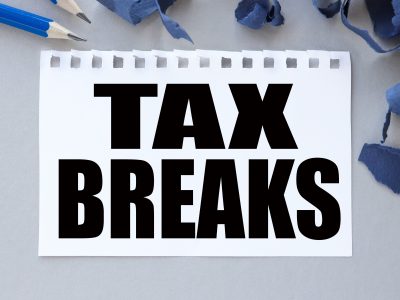You’ve purchased your rental property, but are still trying to understand what tax breaks your rental property will receive. Here’s what qualifies:
Expenses: All of Them
When you own a business, the single biggest difference between the business and your personal finances is that all of your business expenses reduce the amount of money subject to income tax.
Allow me to explain. With personal finances, all your take home pay is taxable, and from that amount, you pay your cell phone bill. However, with a business, the business receives income, subtracts business expenses, such as cell phones (used for business), and only the remaining funds are taxed. If a business spent its total income on expenses, it would not be subject to any tax, and this could even create a loss. Of course, if you did that, you would not make money from your business, but you get my point.
Examples of expenses applicable to a residential rental activity are:
- Mortgage or Loan Interest *
- Insurance
- Property Tax
- Advertising
- Hosting Site Fees
- Cleaning
- Maintenance
- County / City Taxes
- Property Management
- Travel Mileage
- Overnight Travel Meals, Accommodations
- Yard Maintenance
- Utility Bills
- HOA Fees
- Operational Expenses
*Mortgage principal payments are not a deductible expense. Each payment decreases your balance sheet’s liability amount and increases your equity.
Depreciation
Good news! Depreciation is one of the biggest tax advantages for rental property owners because it provides an annual tax deduction that isn’t really an expense. In other words, you don’t outlay cash each year to generate depreciation.
Here is how it works: You need to capitalize the original cost of your property on your balance sheet. This is your business’ major asset, the driver generating income now and in the future. The cost of the house is considered real property and is expensed over time through depreciation per the IRS-prescribed method.
Keep in mind that it does not matter if you paid cash for your rental or mortgaged all or part of your purchase. When you have the title for the property, the cost will be capitalized and depreciated. If you have a mortgage, it will show up on your balance sheet as a liability.
You cannot depreciate land, so be certain to separate land from the building and show it separately on the balance sheet. Check out “How Much of My Cost Is for Land vs. Residence?” to learn more on this topic.
Real property depreciation is the drip fashion of expensing the cost of your property. Want to accelerate that drip, turning the faucet on high? The Residential ROI Booster was built to do just that.
The depreciation expense does not match your actual cash flow of income, less mortgage and other expenses. Therefore, accelerating your depreciation will have the effect of bringing your taxable income down to zero for a period of time while you actually still have positive income from the business. This allows you to enjoy that income tax-free. And who doesn’t want that?
Qualified Business Income Deduction
If you are a qualified business operating as a pass-through entity, 20% of your income could qualify to be tax-free. Sounds too easy? There are a lot of rules, but we can help you understand if you qualify. Check out our blog “20% Qualified Business Income Deduction for Residential Rentals – Do I Qualify?” to learn more.
Improvements and Major Repairs
Most repair expenses you outlay for the property will be fully expensed in the current year. Check with your CPA to learn about any exceptions. For tax purposes, you generally need to capitalize major improvements or renovations that are considered a betterment to the property. If you are simply keeping the property in good working order, you can expense those costs right away.
Stay Organized, Get Benefits
My biggest word of advice is to stay organized!
Keep all receipts, and document all expenses. If you hire someone to help, such as a bookkeeper, his or her fee or salary is an expense, too.



 How Are Residential Rental Properties Taxed?
How Are Residential Rental Properties Taxed?
Leave a Reply